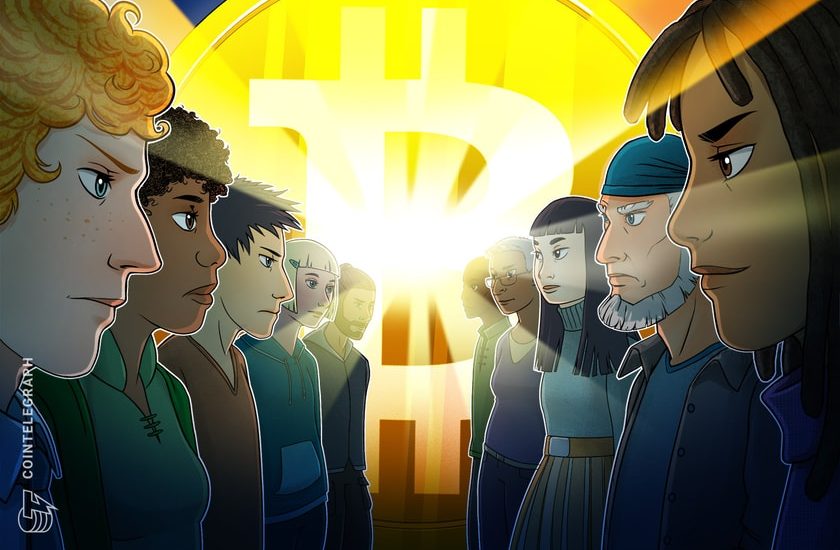- May 11, 2023
- Posted by: admin
- Category: BitCoin, Blockchain, Cryptocurrency, Investments


Bitcoin miners, exchanges and layer-2 builders have different reasons to support or oppose Bitcoin Ordinals.
Bitcoin Ordinals, a technology that enables adding text, images and code on a satoshi — the smallest unit of Bitcoin (BTC) — continues to inspire debate among the Bitcoin community.
Soon after the introduction of Bitcoin Ordinals in January 2023, the technology’s opponents began to raise concerns over its perceived flaws, citing issues like rising transaction costs and slower speeds.
Conversely, Ordinals supporters said that the tech provides more opportunities, improves decentralization and ensures freedom of speech.
As the number of Bitcoin Ordinals inscriptions doubled from 2.5 million to over 5 million in just eight days, Cointelegraph looks at the technology and the controversy surrounding it.
Cost, speed and security vulnerabilities
The undeniable and undesired impact of Ordinals on Bitcoin’s network capacity and scalability is one of the biggest arguments by Bitcoin purists, who believe that BTC is supposed to exclusively follow Satoshi Nakamoto’s prescribed peer-to-peer payment mission.
The ongoing rise in BRC-20 activity — which utilizes Ordinal inscriptions — has triggered a sharp increase in BTC transaction fees. The trading frenzy of BRC-20 memecoins like Pepe (PEPE) has driven Bitcoin transaction costs to the highest levels since 2021.
As users continue pouring BTC into minting new tokens settled via Ordinals inscriptions, the blockchain has also experienced massive congestion. On May 7, the Binance exchange temporarily closed BTC withdrawals due to 400,000 pending transactions clogging the mempool.
Given recent events, can we just agree to rename the mempool to memepool? pic.twitter.com/6jHQKvjPW2
— alfaleek (yo / uhh / hmm) (@alfaleek) May 3, 2023
Enrico Rubboli, CEO of Bitcoin layer-2 sidechain Mintlayer, told Cointelegraph that the technology behind Ordinals is “heavily flawed” and doesn’t follow the “axioms of the core Bitcoin community.”
“The developers of the standard and the tools are not affiliated with Bitcoin, they are anonymous, and their software has not been thoroughly tested in this application,” Rubboli said. The exec also believes that Ordinals could cause additional regulatory scrutiny for Bitcoin, as new BRC-20 tokens may be considered unregulated securities.
Rubboli further argued that, with Ordinals, the protocol is vulnerable to scams. “The entire ecosystem was set up to be confusing and misleading,” he said, arguing that BRC-20 was created to “leech off the popularity of Ethereum’s ERC-20 token.”
He further emphasized that the anonymous BRC-20 creator Domo warned users in the first place that the tokens were “worthless.” Before launching BRC-20, Domo took to Twitter to stress that the token is “simply a fun experiment.”
gm. I'm glad that some people like the experiment. Some additional notes.
1. These will be worthless. Please do not waste money mass minting.
2. Due to how some inscription tools are set up, the 'balance' may be minted to the intermediary address used in https://t.co/mja39YGIow…— domo (@domodata) March 9, 2023
“These will be worthless. Please do not waste money mass minting,” the BRC-20 creator wrote.
Arguments from Bitcoin Ordinals supporters
Bitcoin Ordinal’s capability to unlock new value on the Bitcoin blockchain is a significant counterargument by supporters of Ordinals. Some Ordinals defenders also believe that issues like higher transaction costs will fade with time.
“Ordinals is a beneficial exploration for Bitcoin application and helps to unlock greater value in the Bitcoin network,” F2Pool chief marketing officer Li Qingfei told Cointelegraph, adding:
“The network congestion it brings should be temporary, and there will be good solutions to solve the problem and reduce transaction costs, and increase transaction speeds, just like the Lightning Network.”
Li claimed that the increase in transaction fees will encourage more miners to participate in maintaining the network after Bitcoin’s upcoming halving in 2024. As an active proponent of Ordinals, F2Pool launched a special nonfungible token series called “10² Islands” to celebrate its 10th anniversary.
Roundtable21 co-founder Brandon Dallmann echoed Li’s remarks, stating that BRC-20 is currently being stress-tested against Ethereum’s ERC-20 protocol. “Since it is not complete yet, the Bitcoin network is unable to keep up with the demand and is getting congested,” he told Cointelegraph.
Dallmann also advised users to utilize multiple crypto platforms instead of keeping the entire stake on just one to prevent issues caused by congestion on the Bitcoin network.
Some community members asked why one should hinder Bitcoin’s transformation from “magic internet money” to a more complex technology.
“I see the backlash from many BTC purists, but I don’t think that anyone should use their platform to attempt to censor transactions and attempt to discern between what is a ‘valid’ and ‘invalid’ transaction on any network,” AngelBlock founder Alex Strzesniewski told Cointelegraph.
Many Ordinals supporters have also noted the technology’s contribution to the freedom of speech. “I know everyone hates ordinals, but whether it’s text or images, the ability to publish uncensorable information on the Bitcoin time chain effectively makes speech uncensorable worldwide forever,” Bitcoin observer BitPaine wrote on Twitter.
Perspective matters most
Despite the clashing perspectives between Ordinals’ supporters and detractors, it’s important to note that much of the reasoning for or against them largely depends on perspective.
For example, for layer-2 tech builders, it is only natural to oppose Bitcoin’s base layer developments like Ordinals. In contrast, miners will likely not oppose something that could increase their revenues.
Bitcoin Ordinals are hardly changing anything for hodlers, who most likely won’t care much about transaction fees or the size of the mempool. However, they are causing many issues for traders and other market participants like crypto exchanges.
Whether or not Ordinals are here to stay, the community has yet to see the technology’s full potential and its true consequences.
